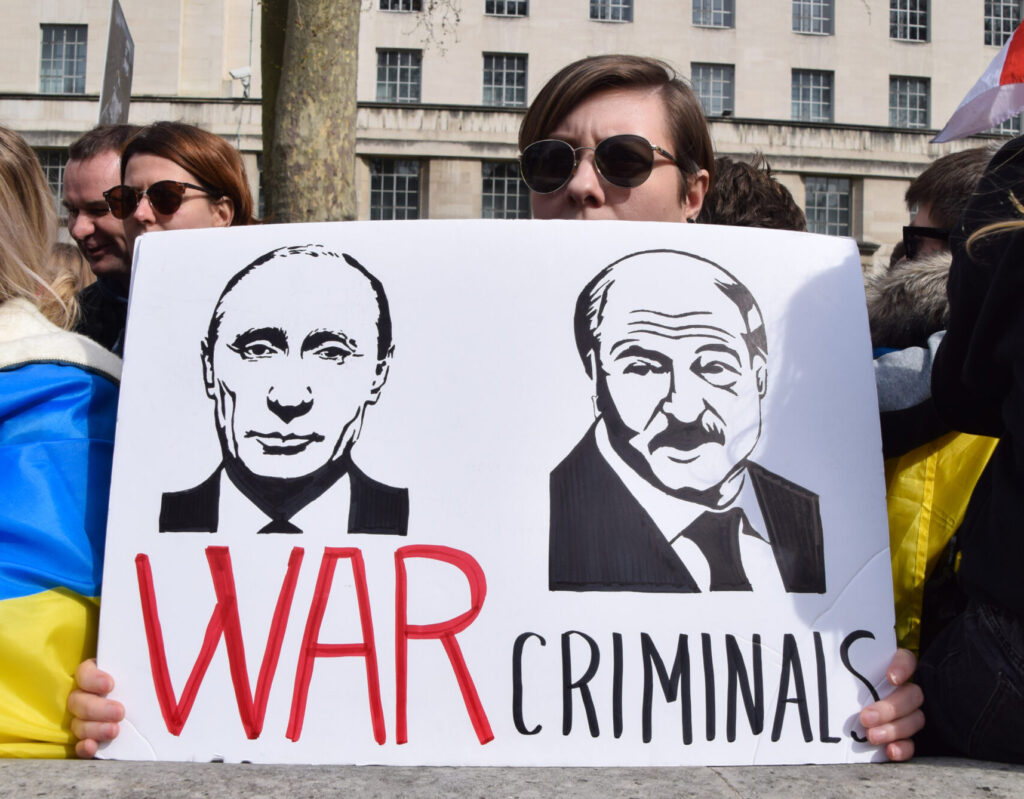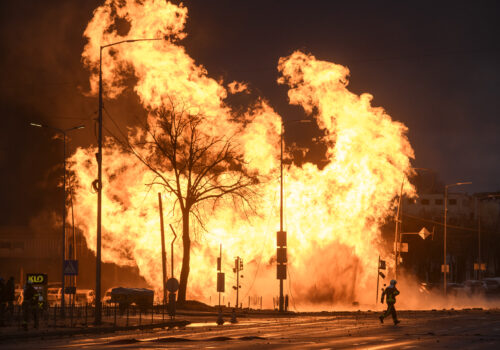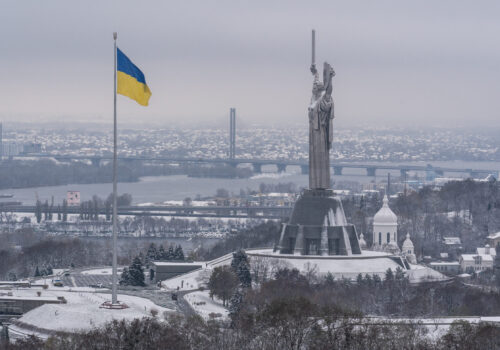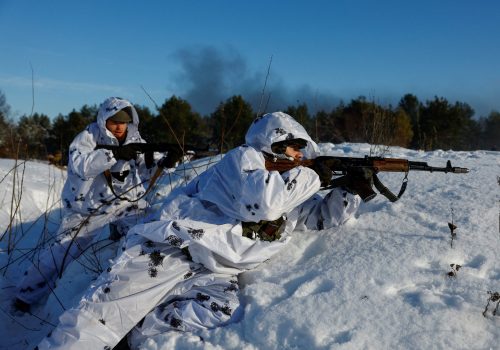Russia’s full-scale invasion of Ukraine currently dominates Europe’s geopolitical agenda, but neighboring Belarus is also a critical battleground in the fight back against Vladimir Putin’s resurgent brand of Russian imperialism.
The activities of Belarus’s democratic opposition warrant greater international attention. This can help raise awareness of the many people currently incarcerated by the Belarusian authorities, along with the millions more who have been robbed of basic human rights by the Lukashenka regime. Crucially, amplifying the efforts of Belarus’s opposition movement also helps debunk efforts to claim widespread public acceptance of the existing political realities in the country.
It is now almost three and a half years since Belarus was rocked by nationwide pro-democracy protests following the country’s deeply flawed August 2020 presidential vote. Belarus’s autocratic leader Alyaksandr Lukashenka was eventually able to suppress this protest movement and remain in power thanks largely to backing from the Kremlin, but he emerged from the crisis more dependent than ever on Russia for his continued political survival.
Today’s Belarusian authorities are widely seen as puppets of the Kremlin, with the country playing a significant role as a junior partner in Russia’s invasion of Ukraine. Meanwhile, there are ample indications of ongoing resistance to the Lukashenka regime. Exiled 2020 presidential candidate Sviatlana Tsikhanouskaya is widely recognized as the leader of the country’s democratic movement and travels extensively to rally international support for political change in Belarus. In Ukraine, significant numbers of Belarusians are currently fighting against the Russian invasion in the Kastus Kalinouski regiment and other volunteer units.
Inside Belarus itself, the draconian policies of the Lukashenka regime make any public opposition extremely difficult. Thousands have been jailed on charges of “extremism,” while nearly 1,500 individuals in Belarus are currently considered political prisoners. Nevertheless, activists have found ways to protest the policies of the Lukashenka regime via cyber attacks and the disruption of Russian military traffic on the country’s rail network.
Stay updated
As the world watches the Russian invasion of Ukraine unfold, UkraineAlert delivers the best Atlantic Council expert insight and analysis on Ukraine twice a week directly to your inbox.
Giving more attention to the activities of the Belarusian democratic movement is particularly important at a time when some European Union governments are still maintaining dialogue with Lukashenka. Any unconditional attempts to reengage with the current Belarusian authorities would risk legitimizing the widespread repression of opposition-minded Belarusians since August 2020. It would also ignore the country’s role in the war against Ukraine. Moreover, the normalization of relations with Lukashenka would send a dangerous signal to Putin that the West lacks strategic patience and prefers unsustainable compromises to conflicts.
An enhanced international media spotlight could help the Belarusian opposition to counter the Lukashenka regime’s domestic disinformation efforts. Belarus is currently recognized as one of the world’s most hostile countries for independent media, and was ranked 157th out of 180 countries in RSF’s 2023 World Press Freedom Index.
Belarus’s official state media outlets promote Kremlin-friendly narratives while claiming that the vast majority of an estimated 500,000 Belarusians who fled the country since August 2020 now want to come home. In February 2023, Lukashenka even signed a decree creating a commission to work with citizens who wish to return to their homeland. Belarusian democratic forces have countered these claims by highlighting the detention of returnees. According to human rights organization Viasna, at least 58 Belarusians were arrested after crossing the border in 2022 and early 2023.
Eurasia Center events

Crucially, Belarusian democratic forces have been drawing attention to growing Russian control over their country, a process many observers have likened to a “creeping annexation” by the Kremlin. Since the watershed events of August 2020, Russia has expanded its economic and political influence in Belarus, while also dramatically increasing its military presence in the country. In February 2022, Putin used Belarus as a base for Russia’s full-scale invasion of Ukraine. More recently, Russian tactical nuclear weapons have reportedly been deployed in Belarus.
While the Kremlin’s tactics may differ, Russia is broadly pursuing the same imperial objectives in both Belarus and Ukraine. In addition to backing Lukashenka politically in Belarus, Moscow also supports the regime’s efforts to suppress the nation’s language and culture.
A December 2023 statement by Russian Foreign Minister Sergei Lavrov declaring the advancement of the Union State, a longstanding bilateral agreement which allows for deepening integration between the two states, indicates Moscow’s intention to further tighten its grip on Belarus in the coming period. Putin is widely believed to view control over Belarus and Ukraine as essential for his dreams of a revived Russian Empire.
It is abundantly clear that European security is impossible without peace in Ukraine. Stability throughout Europe is equally impossible without a free and independent Belarus. The Belarusian democratic opposition has been fighting for years to give voice to the aspirations of the Belarusian people and raise the alarm over Russia’s creeping takeover of the country. It is in the interests of the democratic world to support the Belarusian opposition and highlight their efforts whenever possible.
Tatsiana Kulakevich is an Associate Professor of Instruction at the University of South Florida School of Interdisciplinary Global Studies. Michael Berg is a project assistant at the Atlantic Council’s Geotech Center.
Further reading
The views expressed in UkraineAlert are solely those of the authors and do not necessarily reflect the views of the Atlantic Council, its staff, or its supporters.

The Eurasia Center’s mission is to enhance transatlantic cooperation in promoting stability, democratic values and prosperity in Eurasia, from Eastern Europe and Turkey in the West to the Caucasus, Russia and Central Asia in the East.
Follow us on social media
and support our work
Image: A protester holds a placard calling Russian President Vladimir Putin and President of Belarus Alyaksandr Lukashenka "war criminals", during the demonstration outside Downing Street. Demonstrators gathered in solidarity with Ukraine, as reports emerge of massacres in Bucha and other towns and cities in Ukraine and atrocities reportedly committed by Russian troops. (Photo by Vuk Valcic / SOPA Images/Sipa USA)




